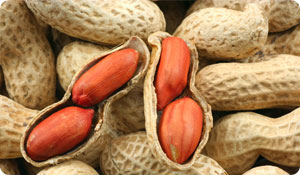
Researchers from Northwestern University's Feinberg School of Medicine have developed a groundbreaking strategy that can potentially end peanut allergies. In a preclinical trial performed on mice, they used a new type of immunotherapy to turn off the immune system response and this allowed it to tolerate the peanut protein with no ill-effects. The findings, which were included in the Journal of Immunology in November 2011, could spell real relief for the millions of people currently grappling with reactions to foods and drinks.
A Cure for Peanut Allergies?
If you suffer from food allergies yourself, you probably know that when your immune system comes into contact with one of your food allergens, it responds by launching an attack to rid it from your body. In the process, chemicals are released in your immune system which can lead to a host of uncomfortable or even dangerous symptoms including a life-threatening condition called anaphylactic shock.
In an effort to free allergy sufferers from the ongoing risk of such serious consequences, the Northwestern researchers came up with a way to "trick" the immune system. They attached peanut proteins onto blood cells and injected them into mice that had been sensitized to this allergen. After two injections of this "peanut allergy cure," the animals were suddenly able to accept the allergen without having a reaction.
The same approach was tried by exposing sensitive mice to egg proteins and again, this strategy successfully prevented an allergic response that would have otherwise been present.
Other Benefits of This Peanut Allergy Cure
This form of immunotherapy works rapidly, making it quite appealing. The model may also be used to tackle multiple food allergies at the same time.
An added benefit is that the injection balances the T-cells (the cells involved in an allergic reaction) to help the immune system achieve a more harmonious state that's better able to avoid allergic responses overall.
Hope for the Future
This research marks the first attempt to use this approach to prevent and treat allergic diseases. If the benefits can be replicated effectively on humans, this can bring life changing results for people with serious food allergies.
A similar method to treat various autoimmune diseases including multiple sclerosis is currently undergoing a clinical trial. Researchers believe that soon, these treatments will bring hope to people coping with a variety of health conditions.
In the meantime, it's important not to relax your efforts to avoid foods and drinks that could spark a reaction. Always double check ingredients before trying anything new, avoid cross contamination in the foods you eat, and always carry an EpiPen® just in case you do come into contact with a food allergen.
Sources:
"Food Allergy Awareness Week." National Institute of Allergy and Infectious Diseases (NIAID). National Institutes of Health (NIH), 2 May 2011. Web, 10 Nov. 2011.
"Peanut Allergy Turned Off by Tricking Immune System." Northwestern University. Northwestern.edu, 11 Oct. 2011. Web. 10 Nov. 2011.
"Researchers turn off peanut allergy in mice." ABC News. ABC.com, 12 Oct. 2011. Web. 9 Nov. 2011.
Smarr, Charles B. et. al. "Antigen-Fixed Leukocytes Tolerize Th2 Responses in Mouse Models of Allergy." Journal of Immunology 187 (10)(11 Nov. 2011):5090-5098. Web. 10 Nov. 2011.
"Turn off Peanut Allergies? Scientists May Know How." MSNBC. MSNBC.com, 11 Oct. 2011. Web. 9 Nov. 2011.





